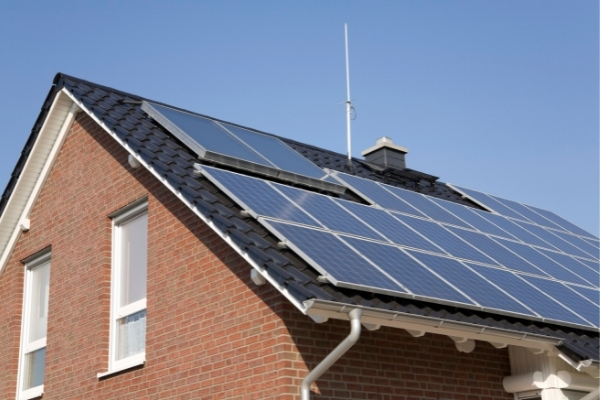Solar panels are one of the biggest trends in renewable energy, and they’re taking off across the United States. But they’re not without their downsides and drawbacks; it’s important to know what you’re getting into when you invest in them, particularly if you’re thinking about getting solar panels for your business or company. Let’s start with understanding what solar panels are!

What Do Solar Panels Do?
Energy from sunlight is absorbed by photovoltaic cells within a solar panel. The resultant electric current can then be used to power appliances and other electrical devices in your home or business. Large commercial solar panels produce significantly more electricity than small residential models; therefore, only businesses or large residential properties can realistically benefit from using these large solar panels.
Businesses like grocery stores and warehouses who rely on heavy machinery that uses large amounts of energy often use commercial solar panels for their daily operations.
Do I Need Them
Solar panels can help you reduce your energy costs as much as 50 percent. The process is relatively straightforward—solar panels absorb sunlight throughout the day and turn it into electricity for your home. If you’re concerned about these cost savings, commercial solar panels can be a great investment in helping to lower your monthly electric bill.
The Costs Involved
Installing a solar panel system is a huge upfront investment; in fact, it’s cost prohibitive for many people. But once you have your solar panels up and running, you’ll see just how easy it is to generate energy from them—even if you don’t even know what electricity is! The truth is that commercial solar panels (as opposed to residential ones) offer so much more in terms of savings over time.
Differences Between Commercial And Residential Solar Panels
Residential solar panels contain less wattage and typically have a lower price point than commercial solar panels. They don’t generate as much power in comparison to their larger counterparts, but they’re suitable for generating electricity on residential properties like single-family homes.
Commercial solar panels are often comprised of larger arrays that feature higher wattage. These arrays can generate a significant amount of energy for businesses and schools that depend on large amounts of power for day-to-day use. Click on the link for more https://www.solarfuture.hk/
Pros and Cons of Going Solar
And while going solar is more affordable than ever these days, it still requires some upfront costs. So, if you want to go green but aren’t sure if going solar is right for you, read on for a list of pros and cons that will help inform your decision-making process.
Let’s start with what could be considered an obvious pro: you’ll save money! Depending on where you live, how much electricity you use and other factors, going solar can slash your energy bill by as much as 75 percent or more.
However, there are also several potential downsides to consider before making a final decision. For example, installing solar panels can cost thousands of dollars—and in many cases you’ll have to pay back loans over several years through your utility bills. If you own your home and have decent credit, however, most installers offer financing options that let you pay off those loans over time without incurring additional interest charges.
Types Of Solar Panels
There are three main types of solar panels: monocrystalline, polycrystalline and thin film. Monocrystalline panels are made from a single large-grain silicon crystal while polycrystalline panels use multiple crystals glued together to form a larger panel.
Thin film is made by depositing layers of semiconductor materials on top of each other on rigid or flexible substrates. The type you choose will depend largely on your individual needs and wants as well as which options make sense for your property.